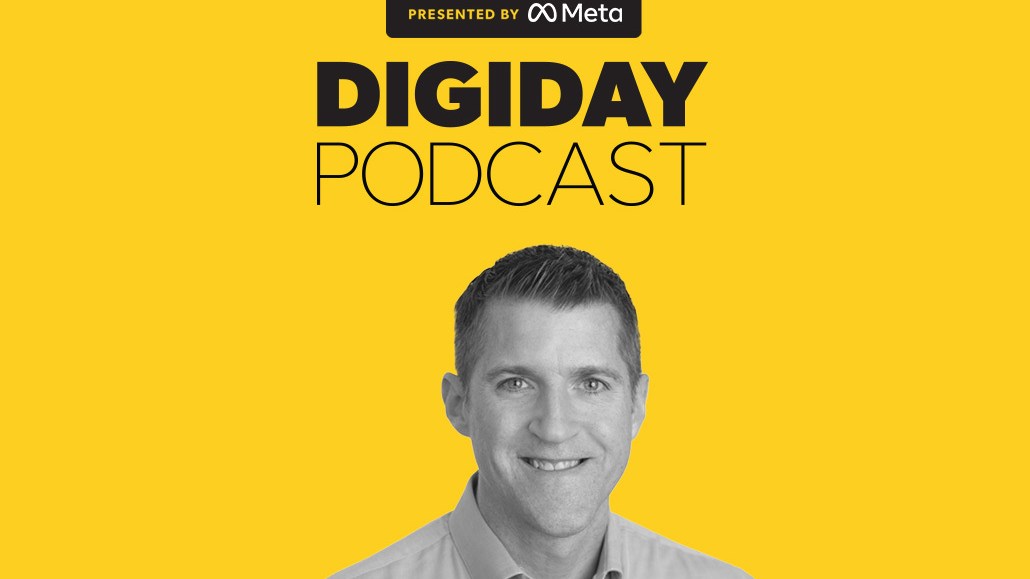Save 50% on a 3-month Digiday+ membership. Ends Dec 5.
Google’s 2024 cookie deprecation deadline is still on, says vp of global advertising Dan Taylor

Subscribe: Apple Podcasts • Spotify
This story has been updated to reflect Google’s clarification over which DOJ lawsuit Taylor referred to in his comments.
Between the Department of Justice’s antitrust suit against Google and the impending self-imposed deadline for removing third-party cookies from its Chrome browser, there is a lot on the technology megacorp’s plate.
But Dan Taylor, the company’s vp of global advertising, is confident that nothing will change the timeline that Google has set for cookie depreciation: “Cookies will be phased out completely from Chrome at the end of 2024.”
On the latest episode of the Digiday Podcast, Taylor discusses how he and his team are continuing to get the third-party cookie alternative solutions off the ground and testing their efficacy ahead of the end of year 2024 deadline. He also speaks on why he’s confident that the ad business will remain intact despite the DOJ lawsuit addressing its dominance in ad tech infrastructure.
“We disagree with the DOJ’s claims. We have no intention of selling or divesting this business. In fact, we’re focused more than ever on helping our publisher partners and our advertiser partners deliver great ROI and great monetization, especially in a time of economic and geopolitical and many other types of uncertainty that we’re all living in today,” said Taylor.
Below are highlights from the conversation, which have been lightly edited and condensed for clarity.
Ad position: web_incontent_pos1
Suck it up and say goodbye to cookies
Some people are uncomfortably excited about the end of third-party cookies because they’re still very familiar and entrenched in the legacy technologies which quite frankly, lead to the state of people’s concerns about privacy online. And the conversations I have with those partners and customers is really, regardless of where you stand philosophically on whether third-party cookies should stay or go, they’re largely already deteriorating in so many different surfaces.
And so regardless of your state of play, things have moved in the direction of … making an internet that’s more private, that doesn’t track people, but still delivers advertising use cases. And so when I hear that customers would rather stick to the status quo, because it’s more comfortable and more easy, I, first of all, say, “Well, you’re up to four years behind already,” … And second, it also reminds me of the pivot to mobile … everyone [wanted] to ignore the problem, right, like my desktop campaigns are working just fine. And then they get angry when the tools and the systems that they built just don’t properly work well. Once you get over the inconvenience of this consumer shift, or this change in consumer sentiment, you embrace new technologies, and it unlocks new periods of innovation.
Putting the API alternatives to the test
When 1% of cookies are deprecated from Chrome [in January 2024], we will have a real world testing environment that everyone will be able to operate and at the same time to understand with the absence of a third party cookie signal, and the input of something like the topics or protected audience API, for example, how will campaigns change? How will performance change? How will volume change? How will ad relevance change? … That’ll be the moment when you can really have a visceral understanding of that.
Ad position: web_incontent_pos2
Early results show promise but not 100%
In Q2 of this year, we conducted an experiment in Google ads on Topics specifically, where we suppressed third-party cookies, and replaced it with Topics … What we saw there was that your Topics, combined with those additional privacy preserving signals, delivered a pretty high degree of fidelity. We looked at that across a few different axes. So the first one being scale: Was an advertiser able to reach their same level of audience? That was, roughly 90-plus percent degree of scale. Second, we looked at performance, and that, for us, was the number of conversions per dollar spent. And again, we saw a really high fidelity there. And then finally, we used: Was it relevant? And so we used an online proxy, which was click-through rate, and we saw over 90% click-through rate relative to status quo third-party cookies.
That gives us a good signal that we’re on the right path with regard to these API’s, but seeing them testing a real world environment is something we’re looking forward to.
More in Media

What publishers are wishing for this holiday season: End AI scraping and determine AI-powered audience value
Publishers want a fair, structured, regulated AI environment and they also want to define what the next decade of audience metrics looks like.

Digiday+ Research Subscription Index 2025: Subscription strategies from Bloomberg, The New York Times, Vox and others
Digiday’s third annual Subscription Index examines and measures publishers’ subscription strategies to identify common approaches and key tactics among Bloomberg, The New York Times, Vox and others.

From lawsuits to lobbying: How publishers are fighting AI
We may be closing out 2025, but publishers aren’t retreating from the battle of AI search — some are escalating it, and they expect the fight to stretch deep into 2026.
Ad position: web_bfu



